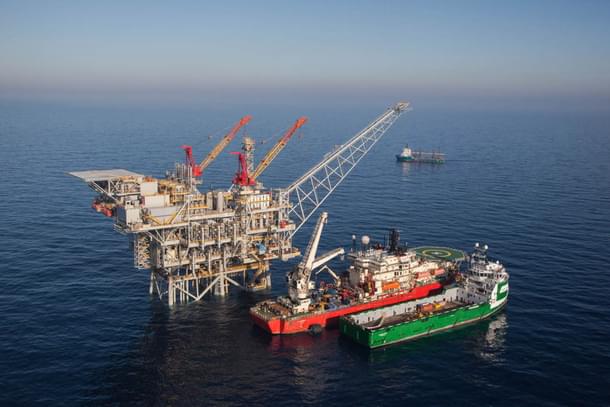Insta
In A First, Indian Firms To Drill For Oil And Gas In Israel
Swarajya Staff
Dec 28, 2017, 12:04 PM | Updated 12:04 PM IST
Save & read from anywhere!
Bookmark stories for easy access on any device or the Swarajya app.


Even as Iran remains hesitant to award the Farzad-B gas field to India, a consortium of Indian state-run oil and gas explorers led by Oil and Natural Gas Corporation (ONGC) Videsh has secured a block in Tehran’s arch-enemy Israel.
According to Israel’s Ministry of Energy, a bid submitted by the Indian consortium of ONGC Videsh, Indian Oil, Oil India and Bharat Petroleum subsidiary Bharat Petro Resources received preliminary approval on 11 December.
This was the first ever competitive process in Israel for awarding exploration licenses in its exclusive economic zone, the ministry noted in its statement. The country had put 24 exploration blocks up for auction in November 2016.
The approval for the Indian bid comes weeks ahead of Israeli Prime Minister Benjamin Netanyahu's three-day visit to India starting 14 January. Prime Minister Narendra Modi’s visit to the Jewish state earlier this year - the first ever visit by an Indian head of government - saw the two countries discuss cooperation in fields such as energy, agriculture, water and infrastructure.
Israel’s auction received bids only from Greece and India as global players kept off for fear of reprisal from the Arab world, Times of India reported. India’s decision to participate in an upcoming Lebanese auction to explore gas fields off the country’s coast is being seen as a balancing act. Lebanon, home to Iran-backed Hezbollah militia, has a long-standing maritime border dispute with Israel.
These developments come even as India’s efforts to reach a deal with Iran on Farzad-B gas field has yielded no results. Indian companies have offered to spend $11 billion to develop the gas field and build the infrastructure required to export fuel if Iran guarantees a “reasonable return” on the project, Reuters has reported.
Discovered in 2008 by an Indian consortium led by ONGC Videsh, India and Iran have missed multiple deadlines to reach a deal. In April this year, unhappy with Tehran’s response to Indian offers, state-run refiners decided to cut oil imports from Iran in 2017-18 by a fifth. This was a strong signal, given that India continued to buy Iranian crude even when the United States imposed sanctions on the country.
Tehran, in response, threatened to cut the discount it offers to Indian buyers on freight from 80 percent to about 60 percent and to let Russian companies develop the field if Indian firms fail to make a satisfactory offer.





